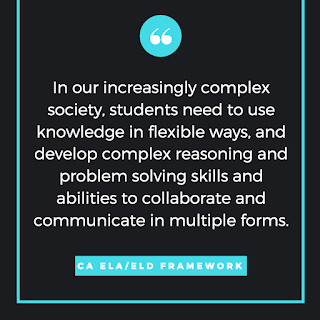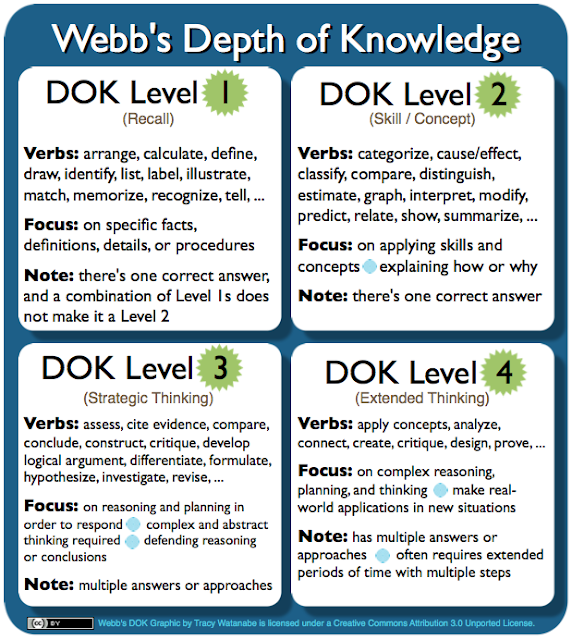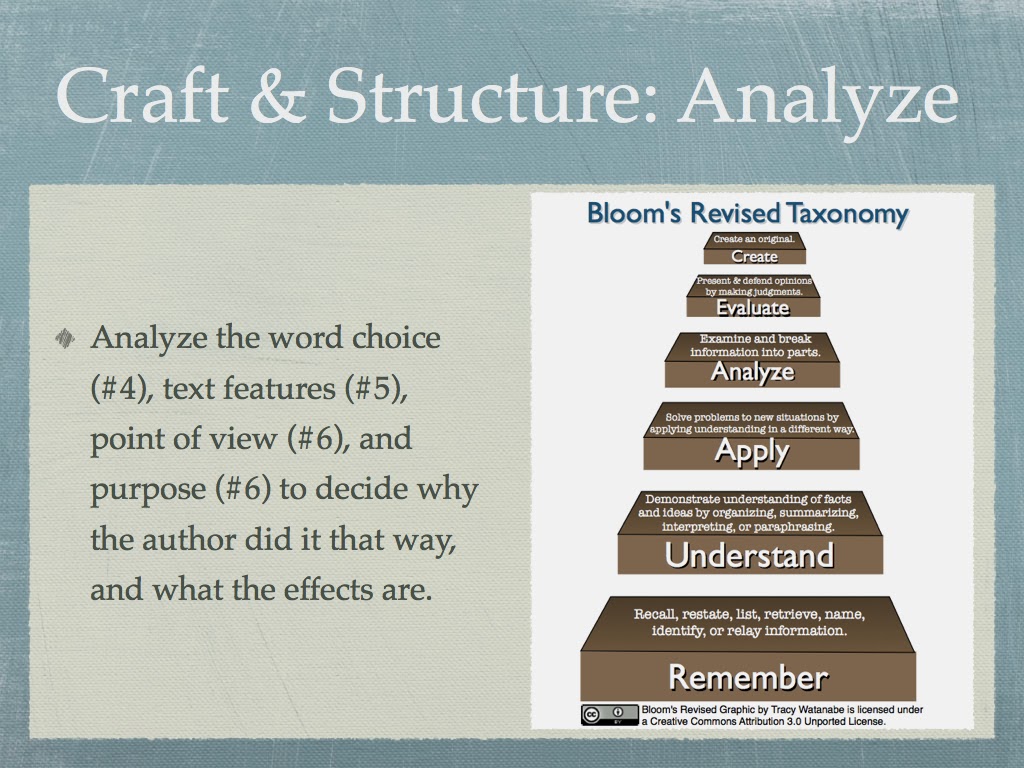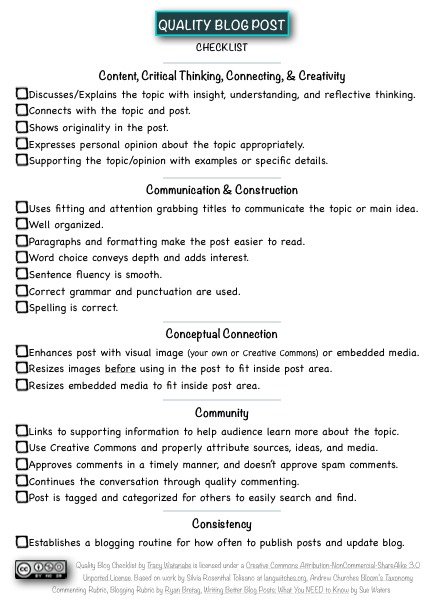Global Collaboration
In order to prepare students to apply rigorous learning to new and real-world situations, educators must provide opportunities that foster critical and creative thinking, communication and collaboration.
Importance of Global Collaborations
Common Core State Standards demand students to collaborate with diverse partners, thereby expanding students' global awareness.
Some of the benefits of collaboration might include:
New 2016 ISTE Standards for Students
I recently attended the ISTE Conference in Denver, where they unveiled the 2016 ISTE Standards for Students. Besides the upgraded section on digital citizenship, I also noticed the spotlight on "Global Collaborator" -- "Students use digital tools to broaden their perspectives and enrich their learning by collaborating with others and working effectively in teams locally and globally."
Technology should be used actively and purposefully for student learning. Digital tools should be used to:
Structures that Allow Connectivity
Global collaborations should be built into classroom learning opportunities, as students also learn about ethical and safe online interaction.
Each district has different infrastructure and policies in place. Within the parameters of the district, students should benefit when teachers provide opportunities for collaboration beyond the four walls of the classroom.
Global Collaborations
At #ISTE2016, I had the privilege of sharing about the Student Blogging Challenge with Sue Wyatt, the organizer of the challenge. I know I've shared ample times that I learned how to blog through the Teacher Blogging Challenge, and went on to understand how to blog with students while participating in the Student Blogging Challenge. Every year, I continue to participate as a mentor in the challenge.
Some other global collaborations that I recently learned about while at ISTE include:
Final Thoughts
Making connections beyond the four classroom walls is not optional, it's an expectation. Let's create systems that will support ethical and safe practices, and continue to share global collaborative opportunities to support educators in this process.
Importance of Global Collaborations
Common Core State Standards demand students to collaborate with diverse partners, thereby expanding students' global awareness.
- Developing interpersonal skills of working together as a team.
- Fostering critical thinking skills while working towards a collaborative goal.
- Increasing comprehension while partaking in conversations and exploring ideas from different perspectives.
- "Collaborative learning promotes communication among students; it is particularly beneficial for English Learners (ELs) because peer interaction contributes to the development of language," (CA ELA ELD Framework, Chapter 2).
New 2016 ISTE Standards for Students
I recently attended the ISTE Conference in Denver, where they unveiled the 2016 ISTE Standards for Students. Besides the upgraded section on digital citizenship, I also noticed the spotlight on "Global Collaborator" -- "Students use digital tools to broaden their perspectives and enrich their learning by collaborating with others and working effectively in teams locally and globally."
Technology should be used actively and purposefully for student learning. Digital tools should be used to:
- Collaborate with diverse partners, and to examine issues from multiple perspectives (2016 ISTE Standards for Students).
- Contribute to team projects, presentations, and ideas (2016 ISTE Standards for Students).
- Explore local and global topics, problems, and solutions (2016 ISTE Standards for Students).
- "(Encourage) elaboration, questioning, and explanation, such as prompting students to explain information and arguments as they read," (CA ELA ELD Framework, Ch. 10).
- "(Teach) with examples and cases, such as modeling how to prepare a presentation or provide constructive feedback to a student author," (CA ELA ELD Framework, Ch. 10).
Structures that Allow Connectivity
Global collaborations should be built into classroom learning opportunities, as students also learn about ethical and safe online interaction.
Each district has different infrastructure and policies in place. Within the parameters of the district, students should benefit when teachers provide opportunities for collaboration beyond the four walls of the classroom.
Global Collaborations
At #ISTE2016, I had the privilege of sharing about the Student Blogging Challenge with Sue Wyatt, the organizer of the challenge. I know I've shared ample times that I learned how to blog through the Teacher Blogging Challenge, and went on to understand how to blog with students while participating in the Student Blogging Challenge. Every year, I continue to participate as a mentor in the challenge.
 |
| Our session at ISTE, with posters created by student participants. |
- Centre for Global Education -- "The mission of The Centre for Global Education (TCGE) is to educate 21st Century students for a 21st Century world by providing global learning opportunities, enhanced through technology, informed by sound research and innovative teaching."
- Global Encounters -- "Global Encounters is an international student video conference program, offered through a partnership between the Centre for Global Education (CGE) and TakingITGlobal (TIG). We've hosted dozens of events on critical global issues such as child soldiers and armed conflict, women's rights, mental health, climate change and many more."
- Global Oneness Project -- Raise global awareness about international issues such as trash in the sea.
- Global School Network -- "Global SchoolNet's mission is to support 21st century, brain-friendly learning, and improve academic performance through content-driven collaboration."
- Great Global Project / Global Collaboration Day -- Resources and opportunities for educators and students. Create your own project and share to make collaborations, or join an established collaboration.
- MyHero Project -- Publish stories, films and artwork to celebrate the best of humanity.
- TakingITGlobal -- "TakingITGlobal empowers youth to understand and act on the world's greatest challenges."
- Wonderment -- "In the Wonderment, kids can join around the globe to explore, creatively collaborate and solve problems on a global level—and be supported with resources to make a real impact on their communities and the world."
- Write Our World -- Author or co-author cultural books and publish online.
Final Thoughts
Making connections beyond the four classroom walls is not optional, it's an expectation. Let's create systems that will support ethical and safe practices, and continue to share global collaborative opportunities to support educators in this process.
- What are some of your favorite global collaborations? What might you add to this list?
- What might be some other benefits of making connections beyond the four classroom walls?
- What thoughts would you like to add to this post?





Comments
Post a Comment
Directions for posting:
1) Choose "Comment As" first. If you don't have a Google/Blogger account, you can choose Name/URL and type in your name, then place the web site that best describes you in the URL (i.e. www.ajusd.org). Or, you can choose "Anonymous".
2) You may need to press "Post Comment" more than one time.
It is always wise to copy your comment before pressing "Post Comment" just in case something happens.
3) Type in the word verification.
4) If you did everything correctly, it will state, "Your comment has been saved and will be visible after blog owner approval." If you do not get that message, please try again.
Click here for a tutorial on how to comment.
Thank you!